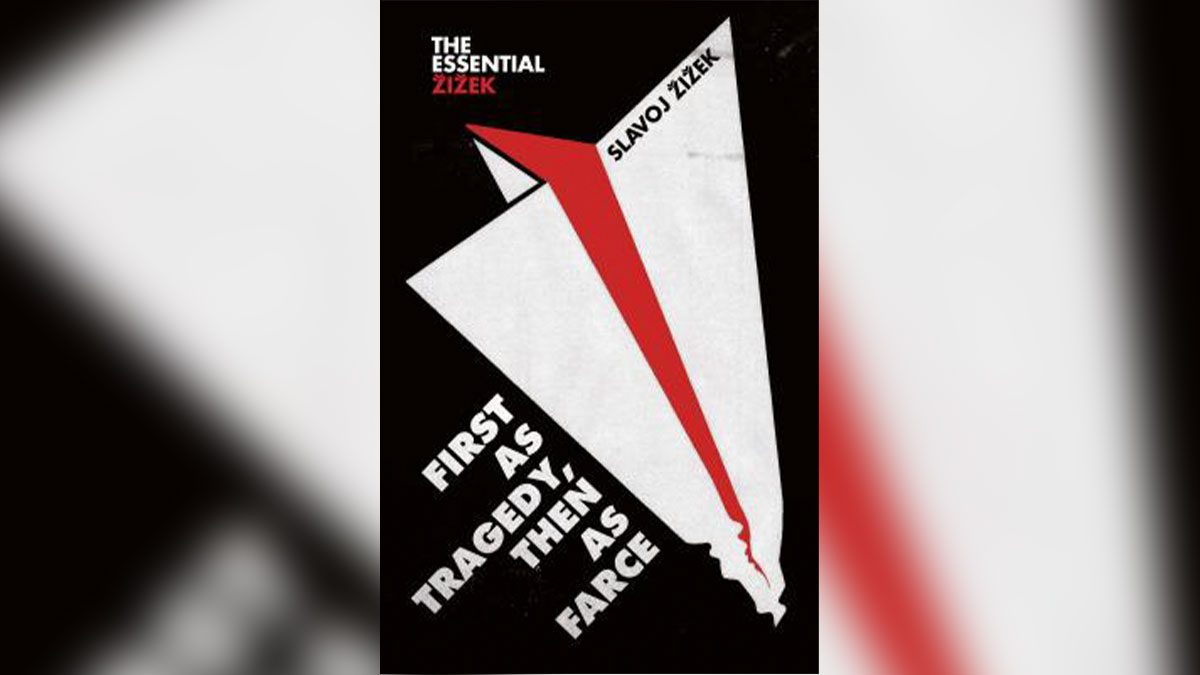Book Review from the February 2010 issue of The Socialist Standard
First as Tragedy, Then as Farce by Slavoj Žižek. Verso, 2009.
Has Slavoj Žižek (the superstar Slovenian “theorist”) signed a piece-work contract with Verso Books? One can’t help wondering because this slim volume brings his tally with that publisher alone to around 21 titles. This Stakhanovite output would be more impressive were it not for his notorious habit of recycling old material, like any good stand-up comedian does.
This two-chapter book is no exception: Žižek seems to have rapidly assembled it by combining his favourite quotes and theoretical hyperbole with some recent news stories from the unfolding economic crisis.
The first chapter (lamely entitled: “It’s Ideology Stupid!”) promises a “diagnosis of our predicament, outlining the utopian core of the capitalist ideology which determined both the crisis itself and our perceptions of and reactions to it.” Setting aside the question of whether ideology can determine a crisis, Žižek does at least provide some valid observations on capitalist ideology’s aims to shift the blame for a crisis away from the capitalist system itself. Yet few of his ideas strike the reader with much force of insight or novelty; and the chapter is haphazardly organized – as if Žižek’s only aim was to squeeze in as many of his treasured anecdotes as possible.
The second chapter (“The Communist Hypothesis”) lays out some of the “communist” ideas that have seasoned Žižek’s recent books. He dances around the question of how to define “communism”, however, choosing instead to locate the “set of antagonisms which generates the need for communism”.
That is at least a start, the reader might think, as it is true that communism (socialism) is not some abstract, ethical ideal, but rather the real solution to problems that cannot be resolved under capitalism. If the problems (or “antagonisms”) of capitalism are clearly explained, the nature of communism – as the solution – will in turn come into view.
But any initial hope that Žižek will eventually explain “communism” dissolves as soon as he unveils those “antagonisms,” said to be: (1) “the looming threat of an ecological catastrophe”; (2) “the inappropriateness of the notion of private property in relation to so-called “intellectual property”; (3) “the socio-ethical implications of new techno-scientific developments (especially in biogenetics)”; and (4) “the creation of new forms of apartheid, new Walls and slums” (author’s italics).
What clear image of communism can possibly emerge from such an overly specific – and basically random – list of contemporary problems?
Žižek tries to avoid getting entangled in his own antagonisms, so to speak, by asserting that the fourth one (also referred to as the separation between “the Excluded and the Included”) is “qualitatively different” from the other three, which would somehow “lose their subversive edge” without it. Of course, Žižek might have defined that key antagonism more precisely as the class division between capitalists and workers – but where’s the fun in that?
The ambiguity of the fourth antagonism allows the author to bend it to his will, in a way not possible with a clear concept like “class”. In particular, it allows Žižek to insist on the (false) distinction between “communism” and “socialism,” condemning the latter for wanting “to solve the first three antagonisms without addressing the fourth”. On that basis Žižek says that socialism is no longer the “lower-phase” of communism (as Lenin had asserted to first introduce the false distinction), but rather the “true competitor” and “greatest threat” to communism.
Given his astounding indifference to what communism actually means, it is no surprise that Žižek cannot fathom workers consciously aiming for a new form of society. The task for his brand of revolutionary is not to explain to fellow workers what communism is, why it is necessary, and how it might be achieved, but rather “to wait patiently for the (usually very brief) moment when the system openly malfunctions or collapses, have to exploit the window of opportunity, to seize power – which at that moment lies, as it were, in the street”.
Žižek insists (repeatedly) that he takes such ideas seriously – even ending the book by advising fellow intellectuals that it’s “time to get serious once again!” – but he is careful to insert just enough ambiguity and humour in his hard-as-nails Leninism to free himself from any real responsibility. Unfortunately, more than a few leftists (including the ageing “New Leftists” at Verso Books!) take Žižek’s “communist” ideas seriously, which only shows how misunderstood communism (socialism) is today.
Michael Schauerte (WSPUS)



